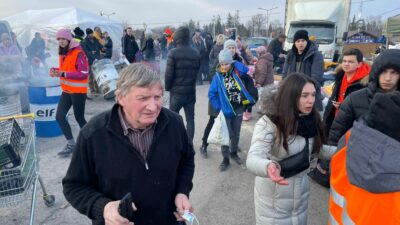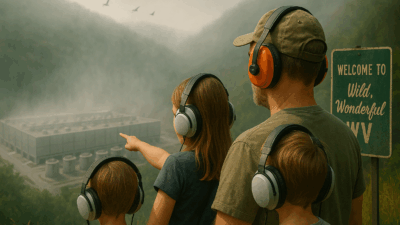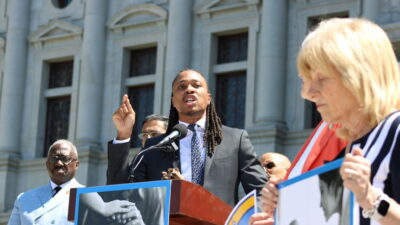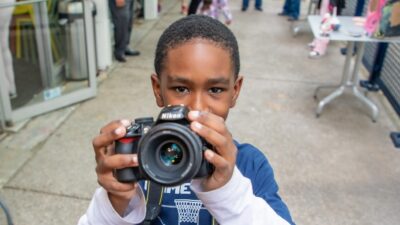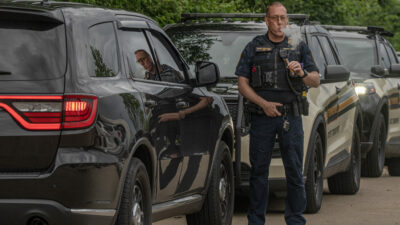It has been a few weeks since I found myself stranded in western Ukraine on the day the war started.

I had entered the country four days earlier to see my girlfriend, Tetyana, whom I had not seen since my last trip to Lviv several months ago.
We had been enjoying the week and I had planned to fly out on Saturday to Warsaw and connect to Krakow, and then home to Boston.
The night of Russia’s invasion, I was out with a couple of Americans and others enjoying drinks, when at 1 a.m. one of my fellow countrymen looked at his phone and announced: “It’s started!”
It is not difficult for me to put myself in the shoes of the people of Ukraine, for I walked among them during those early days of this latest war.
The Russians were hitting targets in Kharkiv and Borispol Airport in Kyiv. Suddenly, the fun week I was having in Lviv, reconnecting with my girlfriend and enjoying a city that I have come to love since first visiting in autumn of 2008, was over.
Ukraine was now a war zone. I felt a bit sick to my stomach and I settled my tab. I walked out the door to my apartment; I needed to evaluate my options for getting out of the country.
I did not sleep when I returned, but rather, watched the BBC broadcast for a couple of hours in which it became clear that this was more than just an escalation of the eight-year conflict in the Donbas region. This was war and I felt tired, like I needed to sleep for a couple of hours before what was likely going to be a stressful day.
Shortly after daybreak I saw a couple of panicked tourists running through the empty morning street of Lviv. They were obviously spooked by the attack and were racing to catch a train, bus or taxi to Poland, since all of Ukraine’s airspace had been closed when the first cruise missile struck the airport.
Watching them from the window of my third-floor apartment did not help my mood. I watched a little more news and packed some clothes. I decided to ask Tetyana to see if there was a train or bus I could take to Krakow. The news showed traffic jams heading west out of Kyiv — four lanes and just vehicles creating a parking lot. I felt panicked, a tightness in my chest without pain. The air-raid siren began to sound — a message stated it was a test and that one should seek shelter.
Tetyana did not know the war had begun when I texted her in the morning. We had agreed that I would sleep at her apartment the next couple of nights. She had been able to purchase a bus ticket for me to Poland for Saturday, Feb. 26. However, as I packed and continued to watch more news, it became clear that the border was going to be busy and I had no idea how long it would take to cross.
I decided to just take a taxi to Tetyana’s apartment, give her $500 and take a taxi to the Shehyni border crossing with Ukraine, which was 90 minutes away.
The taxi arrived and picked me up to go to the border and it was 1,000 UAH (about $30) for the ride. He let me out almost five miles east of the Ukrainian-Polish border crossing at Shehyni. There was a line of traffic headed west as far as the eye could see. Many people were walking next to the traffic line or in the eastbound lane because they also were not prepared to wait in traffic.
I saw mothers pushing strollers and small children struggling to pull luggage bags between tight corridors created by guardrails and trucks and cars. It felt pretty claustrophobic, even though we were outside. There was mud on the side of the road and all the people and traffic made it difficult to walk with luggage. I grabbed a few things, walking out to Poland with only my backpack. I took some video footage as I was walking and recorded some of my thoughts.
It felt surreal, like it was a different time, perhaps 1939 Europe. I could not really process it, but the pain and anguish of the women and their crying children is something I will never forget.
I met a friend at the border during the second day. Mila was a student in Kyiv at Taras Shevchenko University and she encouraged me to continue to attempt to cross, because there was a real crush of people in a holding area and I was fairly exhausted dealing with all of the pushing and jostling to get through one of two iron gates.
I had been in front of the gate several hours earlier, around 7 a.m. when the border had closed again and I had backed away. The crush of people was unrelenting.
We lost contact for a couple of days after I was pushed through the gate, my leg initially trapped and crushed against the iron gate. I had made it to another three-hour line before getting my passport stamped in Ukraine and walking into Poland. A few days later, I noticed a message from Mila asking me if I was OK. She had sent it shortly after I had lost contact with her at the crossing Friday night, but my phone had died hours earlier. I felt a sense of relief that she was fine as well.
A few nights ago I picked up Mila from JFK Airport in New York; I had offered for her to come to the U.S. and visit while she figured out what would be next in her life. So many people we walked with and stood with at the border were leaving everything behind that day.
My girlfriend, Tetyana, so far has refused to cross into Poland, unwilling to become a refugee and leave male members of her family behind. I am grateful that I am able to help some friends, even if just in a small way during this difficult time. It reminds me of a quote — “There but for the grace of God.”
It is not difficult for me to put myself in the shoes of the people of Ukraine, for I walked among them during those early days of this latest war.

